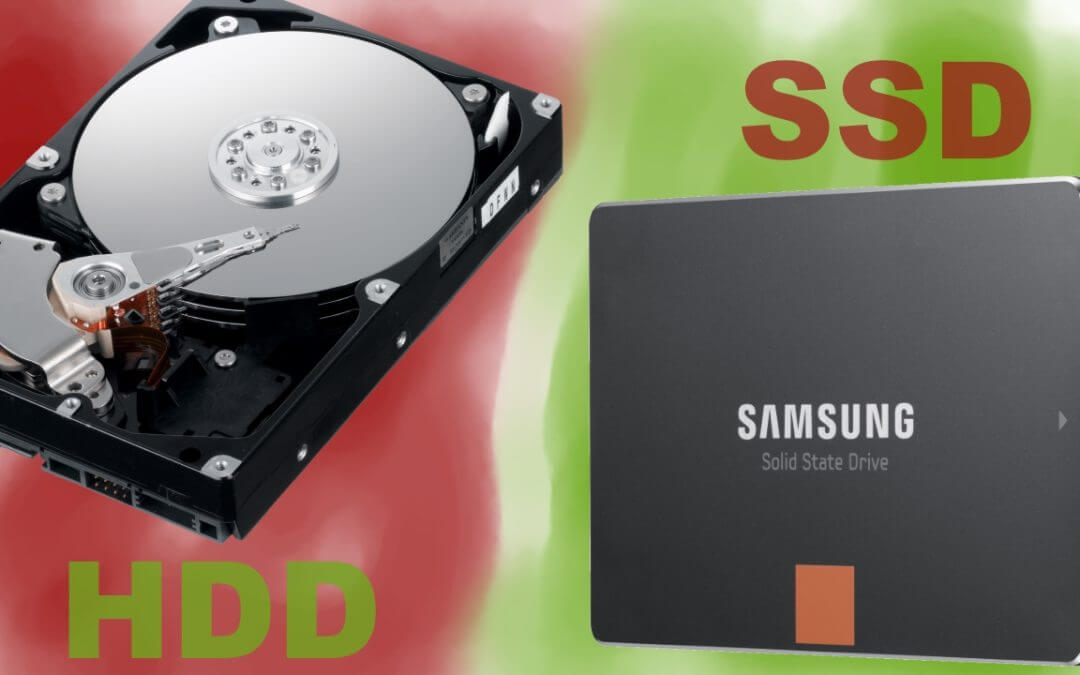What is an SSD?
A solid-state drive (SSD) is a data storage device, typically used in a computer. It uses flash memory to store data even after power is turned off. SSDs are designed to access data in the same way as traditional hard disk drives (HDDs). A HDD can usually be directly replaced with a SSD.
The best thing about solid state drives is that they have a much faster read/write speed than hard disk drives.[1] They also have no moving parts, which means they don’t make noise or break as easily. Unfortunately, SSDs are much more expensive than hard disk drives. This also means that for the same price, someone can get much more capacity if they select a HDD instead.
A website, blog, or any online application may require a lot of database input and output, and increase in popularity of your website may lead you to get more traffic to your site. Due to the number of users, your hard drive will get more I/O requests and may slow down the speed of generating information from your database. This is the main limitation of HDD, as it consists of a spinning head that restricts the amount of information requested at a given time. To overcome this restriction, a drive was introduced known as SSD. As it lacks moving parts, and only network speed can slow down the data transfer rate of SSD. Particularly, an SSD can be more than 100 times faster than ordinary HDD regarding I/O operations.
Access time is crucial for dynamic data driven and concurrently high traffic generating websites like Facebook, Twitter, LinkedIn, etc. A traditional hard disk drive may take 15-20ms to process a request whereas SSD can process it in just 0.2ms. So, in terms of speed SSDs are more advantageous over HDDs.
SSD hosting is required to accelerate the process of retrieving information from the file system and database of websites that make use of CMS like WordPress, Joomla, Drupal, etc.
How SSDs are more advantageous over HDDs?
A server with an SSD can read data much faster than a standard HDD as it does not contain physical moving parts and is based on solid-state flash memory. They are more resistant to shocks, run quietly, have lower access times, and less latency than an HDD.
Some of the benefits of SSDs are listed below:
- Better performance
Websites should not take more than 3 seconds to load and faster read/write speeds allow websites to load faster. SSDs can help to achieve this speed as the performance of SSD is much better than traditional hard drives.
- Reliability
SSD don’t wear out over time as they don’t have any moving parts and are more reliable than non-SSD drives. Traditional hard drives also good and reliable but SSDs use a more efficient technology that can stand better over time.
- Environmentally friendly
SSDs are more eco-friendly as they consume a lot less power compared to normal disks, produce no sound, and are cooler than HDDs.
Cons/Disadvantages of SDDs
Along with the benefits listed above SSDs also have some disadvantages listed below:
- More Expensive
Regarding prices per gigabyte, SSDs are more expensive than HDD.
- Limited Storage Capacity
As compared to HDD, it stores less amount of data due to its low storage capacity.
What about SSD Caching?
SSD Caching involves storing “hot” data (data frequently accessed by the server) while less frequently accessed data is stored on HDDs. SSD caching is quite the marketing gimmick, as you (the client) may not even know the size of the SSD that caches the frequently accessed data, You’re also not guaranteed that your data will ever get cached, or even stay in the cache long enough to matter. Furthermore, SSD caching will be shared by all the clients on the server – which will give you fewer chances of taking an advantage of the cache.
How does pure SSD storage play a major role?
The SSD web hosting that we offer is built with hardware RAID10 arrays of pure SSD storage.
RAID 10 is mirroring and striping which gives rise to further better performance and Fast path being able to double the performance using any SSD.
Final notes:
Ultimately, SSDs are much faster, better on the environment, and more durable than HDDs. At TinkerHost.com, we only use pure SSD storage on our servers. If you’re looking for lightning fast response times, and fast hosting then look no further then us.
Still not sure?
Want to try our hosting before buying? Use the promo code FREETRIAL when ordering any of our shared hosting, or reseller hosting. if you do choose to buy our hosting be assured that your hosting will be backed up by a 30 day money back guarantee.

